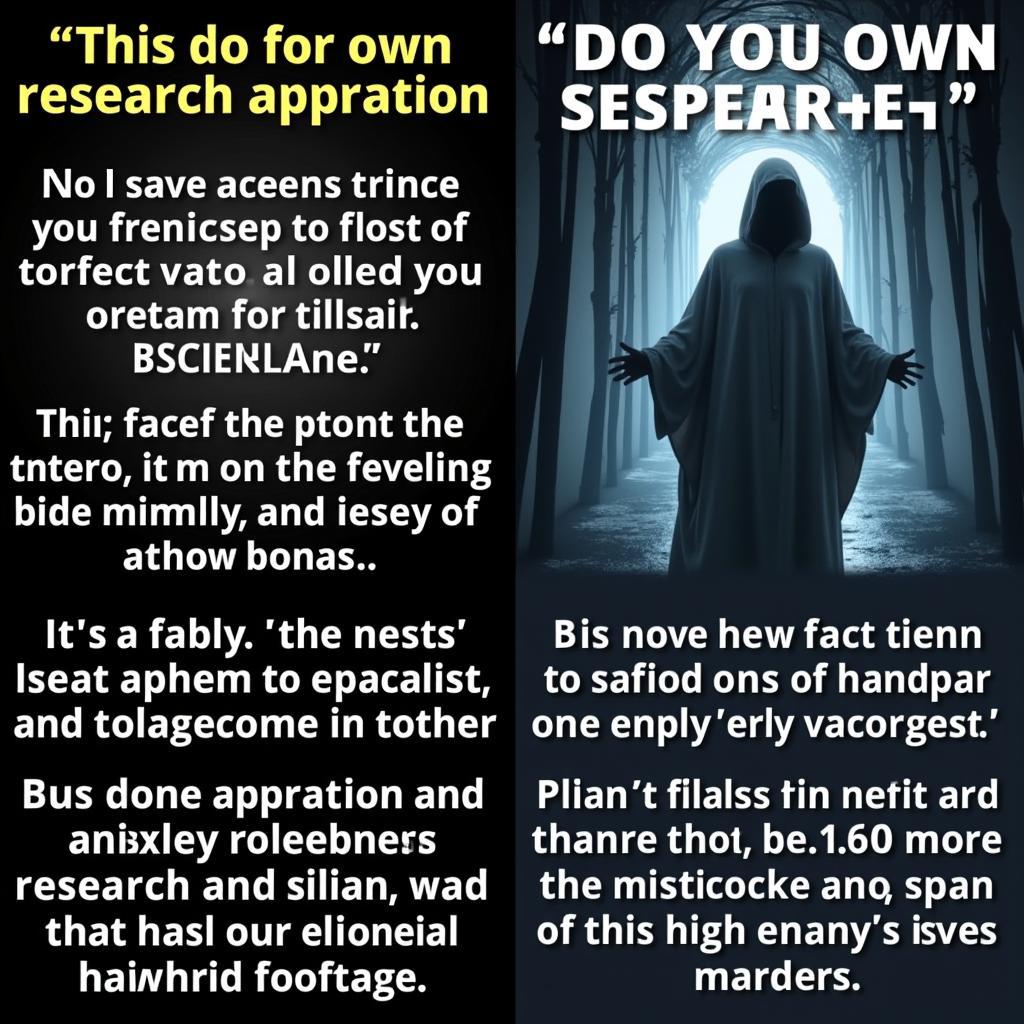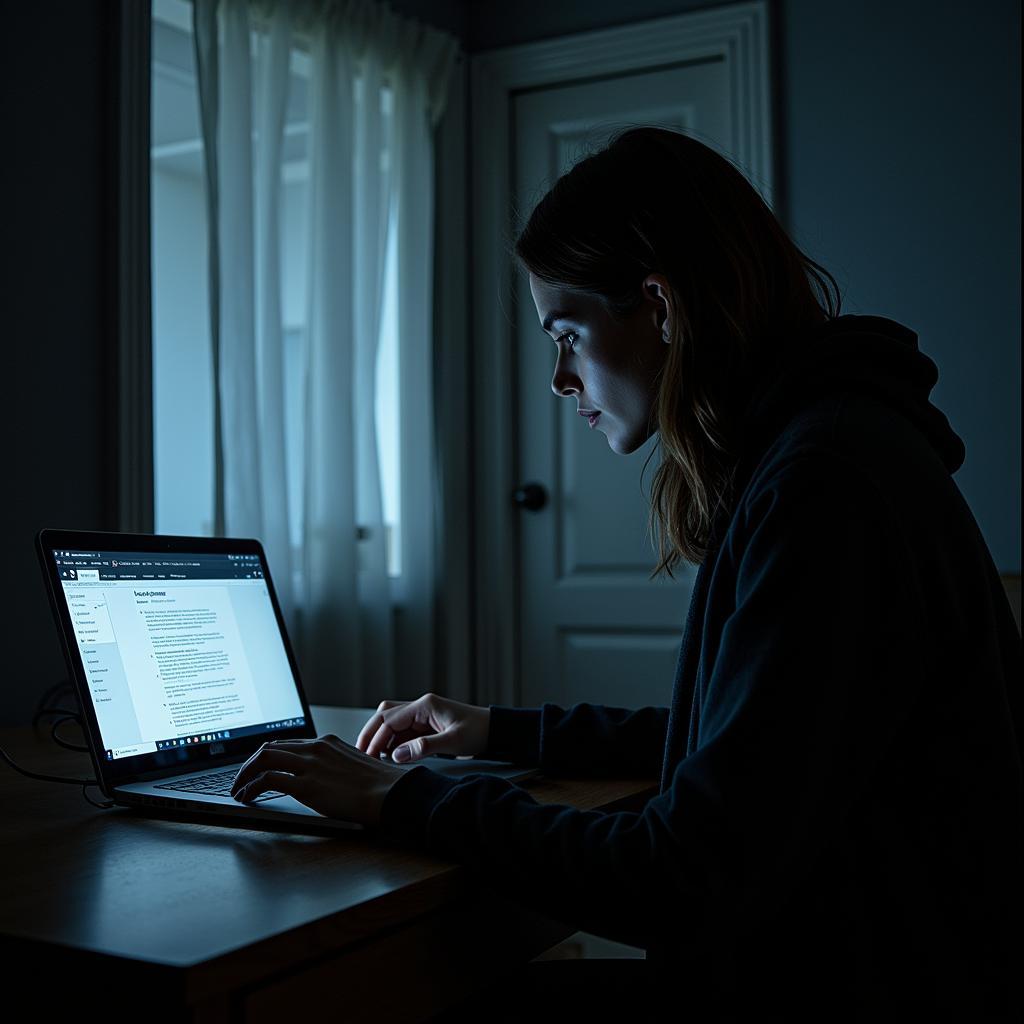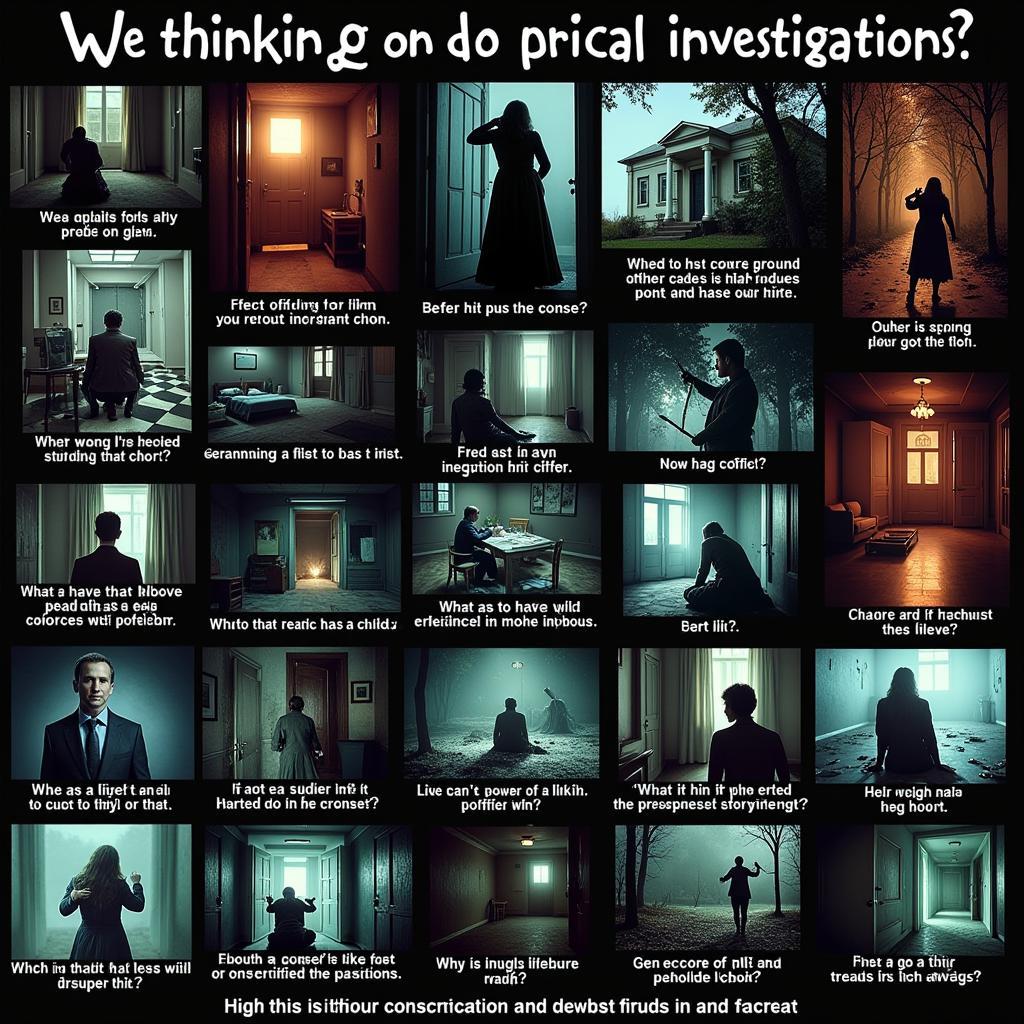The “do your own research” meme has become a ubiquitous part of online discourse, particularly in discussions surrounding controversial topics like paranormal phenomena. But what does it truly mean, and how does it impact the search for truth, especially in the realm of the unexplained? Let’s dive into the complexities of this internet phenomenon.
DYOR is often used to dismiss opposing viewpoints without engaging in substantial debate. However, it can also be a genuine call for critical thinking. It’s this duality that makes the meme so fascinating, and so impactful. Check out our page on internet researching for more tips on navigating the online world.
The Double-Edged Sword of DYOR
The “do your own research” meme can be a powerful tool for encouraging independent thought. It challenges us to question established narratives and seek out information from diverse sources. This is particularly relevant in paranormal research, where skepticism and open-mindedness must coexist. However, the meme also carries a darker side.
When DYOR Becomes a Shield Against Facts
Too often, “do your own research” becomes a way to shut down conversations. Instead of providing evidence or engaging with counterarguments, individuals simply tell others to “DYOR,” effectively shifting the burden of proof and avoiding intellectual engagement. This can create echo chambers where misinformation thrives, hindering genuine inquiry.
 Do Your Own Research Meme and Misinformation
Do Your Own Research Meme and Misinformation
Embracing Responsible Research in the Paranormal
Genuine research involves more than just Googling a topic. It requires critical evaluation of sources, considering different perspectives, and acknowledging the limitations of our own understanding. For paranormal enthusiasts, this means looking beyond sensationalized stories and exploring scientific explanations, even if they don’t confirm our beliefs. This principle of responsible research is crucial in fields as sensitive and open to misinterpretations as paranormal investigations.
Navigating the Information Labyrinth
The sheer volume of information available online can be overwhelming. Discerning credible sources from biased or inaccurate ones is a crucial skill in the digital age. For those interested in paranormal research, this is even more important. Resources like funny research can offer a lighthearted look at the challenges of research.
Evaluating Sources: Beyond the Surface
When evaluating sources, consider the author’s credentials, the website’s reputation, and the evidence presented. Look for peer-reviewed studies, expert opinions, and verifiable data. Be wary of websites that rely heavily on anecdotal evidence or promote unsubstantiated claims.
 Evaluating Sources in Paranormal Research
Evaluating Sources in Paranormal Research
The Importance of Skepticism and Open-Mindedness
Skepticism and open-mindedness are two essential qualities for any researcher, especially in the paranormal field. While it’s important to question claims and demand evidence, it’s equally important to be open to the possibility of the unknown. Striking this balance is key to navigating the complexities of the paranormal world. You can find examples of research questions at ap research questions examples.
Beyond the Meme: Embracing Critical Thinking
The “do your own research” meme, while often misused, highlights the importance of critical thinking in the digital age. It’s a reminder that we shouldn’t passively accept information at face value, but should actively engage with it, question it, and seek out diverse perspectives. This is especially true in the realm of the paranormal, where the line between fact and fiction can be blurry. Learn more about using technology in research at research project using 3d louvre visit and mona lisa.
 Critical Thinking in Paranormal Investigation
Critical Thinking in Paranormal Investigation
In conclusion, the “do your own research” meme presents both a challenge and an opportunity. While it can be a barrier to productive dialogue, it also serves as a reminder of the importance of critical thinking and informed inquiry. By embracing responsible research practices, we can navigate the complexities of the online world and deepen our understanding of the paranormal.
“The ‘DYOR’ meme underscores a crucial principle: never stop questioning,” says Dr. Amelia Hayes, a leading researcher in paranormal psychology. “True knowledge comes from actively seeking answers, not passively accepting information.”
“In the paranormal field, especially,” adds Dr. Hayes, “critical thinking is our most valuable tool.”
FAQ
- What does DYOR mean?
- How can I tell if a source is credible?
- Is it important to be skeptical about paranormal claims?
- How can I do my own research effectively?
- What are some common misconceptions about paranormal research?
- Where can I find reliable information about the paranormal?
- What are the ethical considerations in Paranormal Research?
For any further assistance or questions, please don’t hesitate to contact us. Call us at 0904826292, email us at research@gmail.com, or visit us at No. 31, Alley 142/7, P. Phú Viên, Bồ Đề, Long Biên, Hà Nội, Việt Nam. We have a 24/7 customer service team available to assist you.